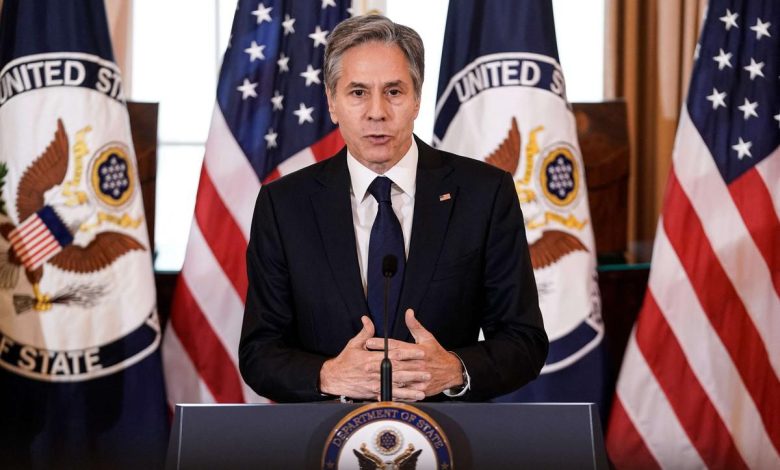American flexibility towards Tunisia could expedite an agreement with the International Monetary Fund

US Secretary of State Antony Blinken on Monday gave positive signals, reflecting a slight shift in his country’s hard-line stance toward Tunisia, after Washington sought to pressure Tunisian President Kais Saied following the arrests of opposition politicians, including the head of Tunisia’s Ennahdha Party, on charges of state security conspiracy and incitement to murder, and after stalled negotiations with the International Monetary Fund.
Speaking at a news conference with his Italian counterpart, Antonio Taiani, at the U.S. Department of State, Blinken said he would like Tunisia to submit a revised reform plan to the International Monetary Fund, adding that it “clearly needs more help if it wants to avoid an economic collapse.”
“We very much welcome the Tunisian government’s submission of a revised reform plan to the IMF and the IMF’s ability to work on the submitted plan, but these are sovereign decisions,” he said.
Tunisia’s talks with the International Monetary Fund (IMF) on rescuing its financial situation have apparently been stalled for months and there is no sign that President Kais Saied is willing to agree to take the necessary steps to reach an agreement and help the country avert a financial crisis.
Tunisia reached an expert-level agreement with the IMF in September to obtain a $1.9 billion loan, but has not met major commitments. Donors believe that the country’s financial situation is very different from the numbers on which the agreement was concluded.
“Without the loan, Tunisia will face a significant balance-of-payments crisis and most of the country’s internal debt, but it will still be owed payments for foreign loans later this year.” Ratings agencies say that Tunisia may default.
Blinken’s comments come after the European Union announced Sunday that it may lend Tunisia more than one billion euros ($1.07 billion) to help its struggling economy grow, save its public finances and enable it to weather the migration crisis, but most of that money is contingent on approval of economic reforms.
“European Commission President Ursula von der Leyen made the offer during a visit to Tunisia with Dutch Prime Minister Mark Rutte and Italian Prime Minister Giorgia Meloni, who are concerned about waves of migration across the Mediterranean to her country.”
The effort, spurred by growing concern in Europe about Tunisia’s stability, is the latest attempt by major donors to persuade Saied to agree to IMF conditionality on a financial rescue package.
Tunisian President Kais Saied has categorically rejected foreign dictations, saying that infringing on the subsidy system has in the past caused the social front to ignite and caused a bloodbath, likening this to a match near highly explosive materials.
During a visit to Sfax province last weekend just hours before the arrival of the European delegation, he said Tunisians should be self-reliant, describing Tunisia as a poor country in a rich country.
Last week, Italian Foreign Minister Antonio Taiani said that his country is working with the European Union and the International Monetary Fund to grant a loan to Tunisia, announcing that he will “visit Washington to meet with the International Monetary Fund President Kristalina Georgieva,” indicating that he will insist on the Italian proposal to start funding Tunisia, and then see how the required reforms are going before continuing funding,” according to the Italian AKI agency.
“Either you implement the reforms or you won’t get the funding, it seems to me like an excuse that Tunisians cannot accept.. We must go hand in hand on the path of funding and reforms,” he said, stressing “Italy’s strong commitment to Tunisia so that this country can get the necessary support and avoid a financial collapse.”












